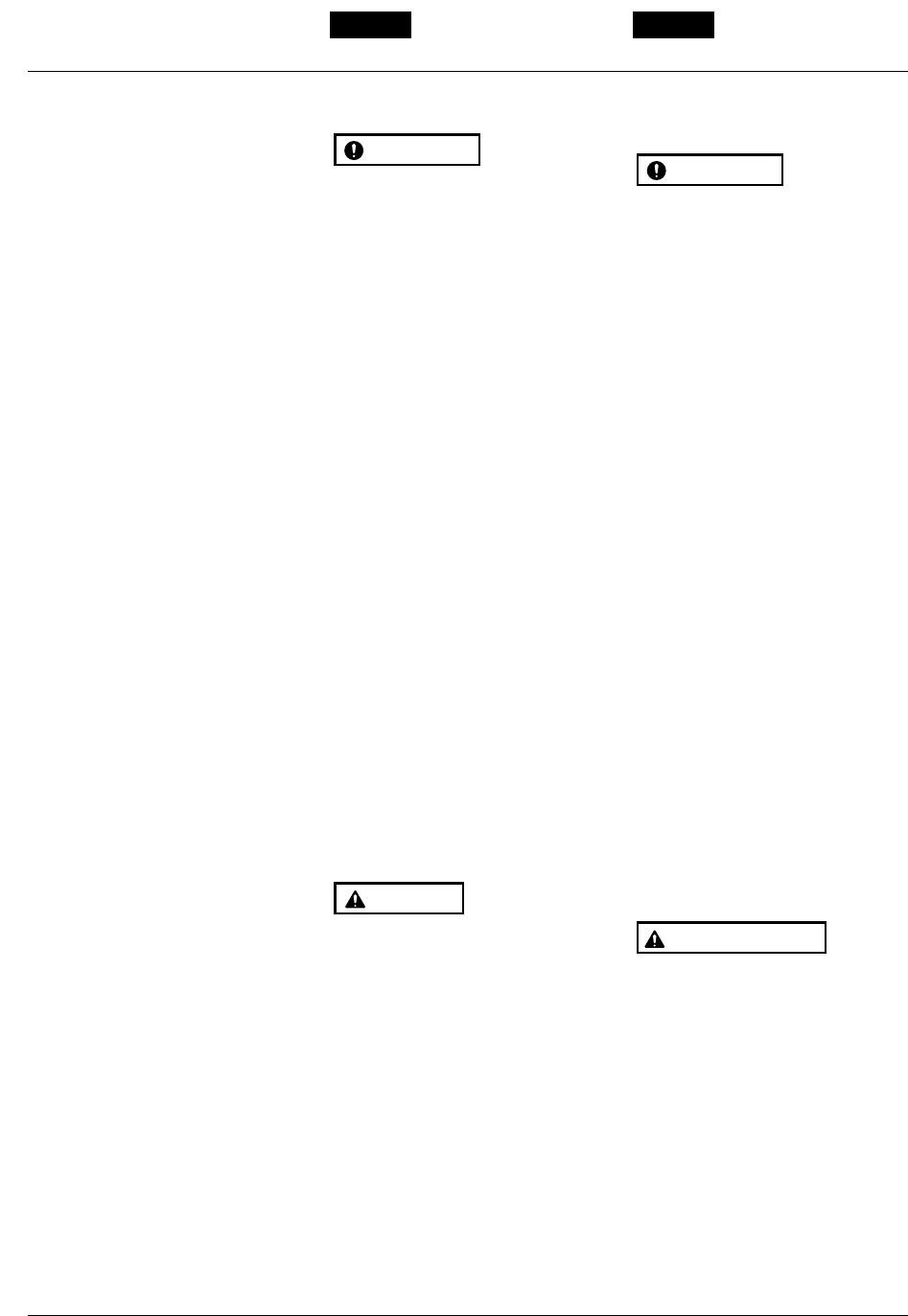
English Français
18
4. Fuel 4. Carburant
■ HOW TO MIX FUEL
Pay attention to agitation.
1. Measure out the quantities of gasoline
and oil to be mixed.
2. Put some of the gasoline into a clean,
approved fuel container.
3. Pour in all of the oil and agitate well.
4. Pour In the rest of gasoline and agitate
again for at least one minute. As some
oils may be difficult to agitate
depending on oil ingredients, sufficient
agitation is necessary for the engine to
last long. Be careful that, if the agitation
is insufficient, there is an increased
danger of early piston seizing due to
abnormally lean mixture.
5. Put a clear indication on the outside of
the container to avoid mixing up with
gasoline or other containers.
6. Indicate the contents on outside of
container for easy identification.
■ FUELING THE UNIT
1. Untwist and remove the fuel cap. Rest
the cap on a dustless place.
2. Put fuel into the fuel tank to 80% of the
full capacity.
3. Fasten the fuel cap securely and wipe
up any fuel spillage around the unit.
1. Select bare ground for fueling.
2. Move at least 10feet (3meters) away
from the fueling point before starting
the engine.
3. Stop the engine before refueling the
unit. At that time, be sure to
sufficiently agitate the mixed
gasoline in the container.
FOR YOUR ENGINE LIFE, AVOID;
1. FUEL WITH NO OIL(RAW GASOLINE)
– It will cause severe damage to the
internal engine parts very quickly.
2. GASOHOL – It can cause deterioration
of rubber and/or plastic parts and
disruption of engine lubrication.
3. OIL FOR 4-CYCLE ENGINE USE or
WATER COOLED 2-CYCLE ENGINE
USE – It can cause spark plug fouling,
exhaust port blocking, or piston ring
sticking.
WARNING
IMPORTANT
■ COMMENT OBTENIR UN BON
MELANGE
• Faire attention à ne pas trop remuer
le carburant.
1. Mesurez les volumes d’essence et
d’huile à mélanger.
2. Verser un peu d’essence dans un
récipient à carburant propre.
3. Verser ensuite toute l’huile, puis bien
remuer le tout.
4. Verser enfin le reste de l’essence, puis
bien mélanger l’ensemble pendant une
minute environ. Etant donné que
certains types d’huiles sont plus fluides
que d’autres en fonction de leur
composition, un brassage énergique est
nécessaire afin de garantir une bonne
marche du moteur pendant longtemps.
En effet, en cas de mélange insuffisant,
un risque majeur de problèmes au
niveau des cylindres peut apparaître
en raison d’un mélange hétérogène.
5. Placer une étiquette assez grande sur
le récipient afin d’éviter de le confondre
avec de l’essence ou avec d’autres
récipients.
6. Indiquer les composants sur cette
étiquette afin d’en faciliter
l’identification.
■ REMPLISSAGE DU RESERVOIR
1. Dévisser puis retirer le bouchon de
carburant. Déposer ce bouchon sur une
surface non poussiéreuse.
2. Remplir le réservoir de carburant à 80%
de sa capacité totale.
3. Visser fermement le bouchon du
réservoir et essuyer toute éventuelle
éclaboussure d’essence sur l’appareil.
1. Effectuer le remplissage sur une
surface nue.
2. S’éloigner d’au moins 3 mètres du
point de remplissage avant de
démarrer le moteur.
3. Arrêter le moteur avant de démarrer
l’appareil. Bien remuer à cet instant
le mélange d’essence dans le
réservoir.
A EVITER POUR PROLONGER LA
DUREE DE VIE DU MOTEUR;
1. ESSENCE SANS HUILE (ESSENCE
PURE) – L’essence pure est capable
d’endommager très rapidement les
pièces du moteur.
2. ESSENCE-ALCOOL – Ce mélange
risque de très rapidement détruire les
pièces en caoutchouc et/ou en
AVERTISSEMENT
IMPORTANT


















